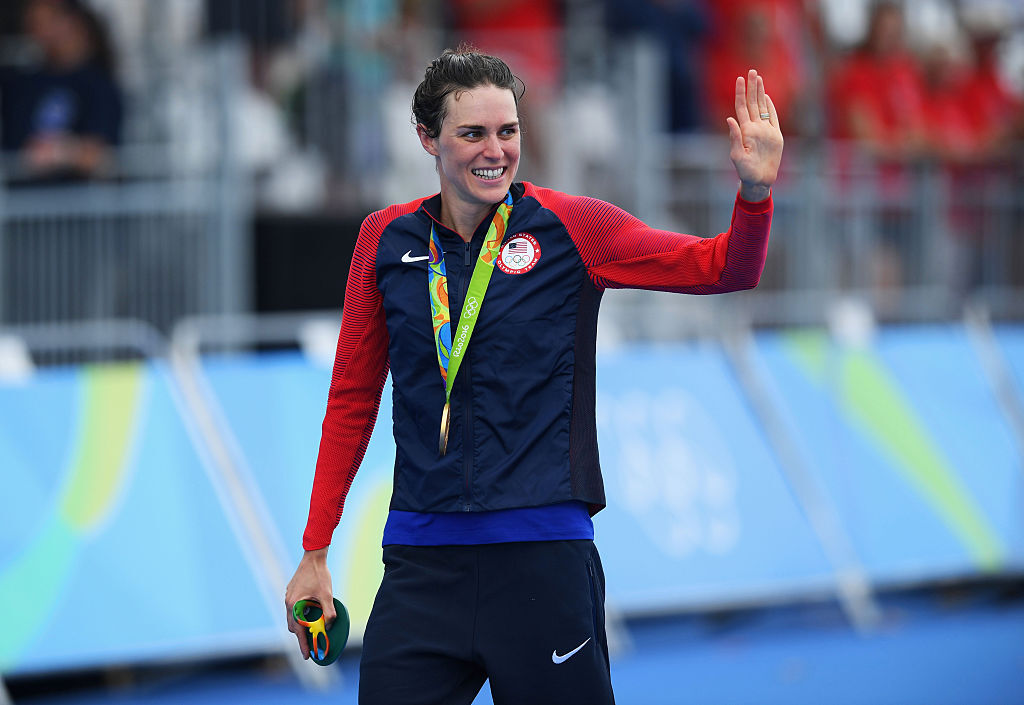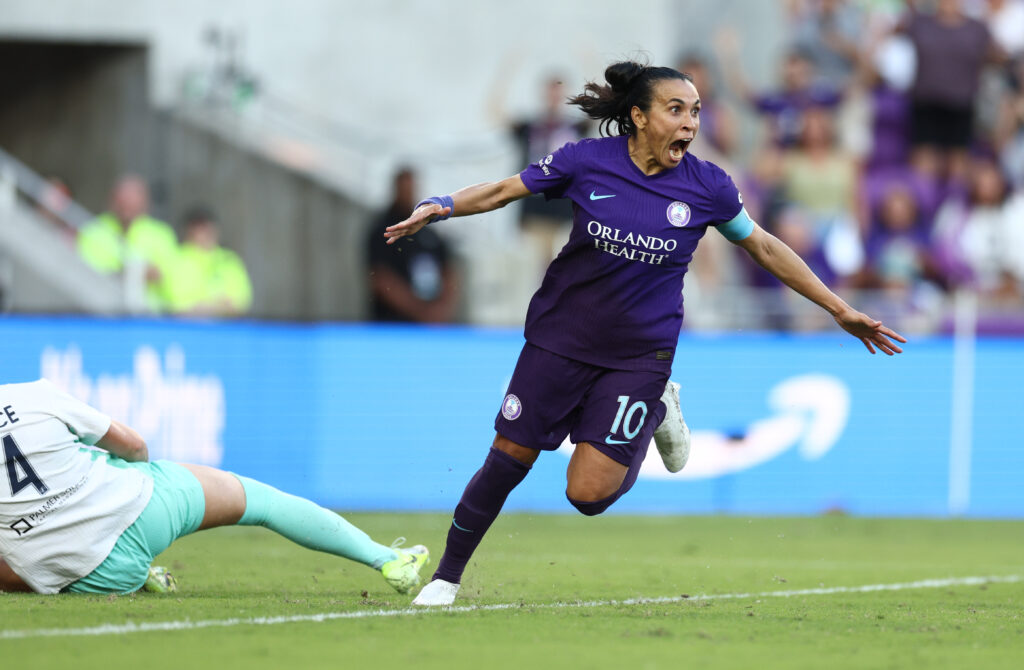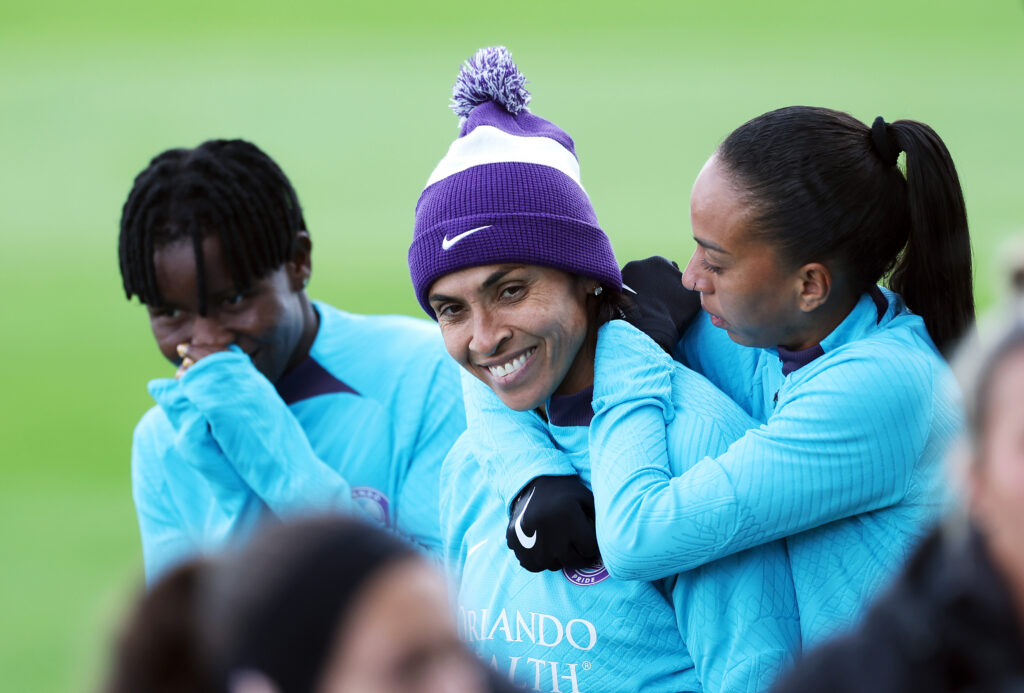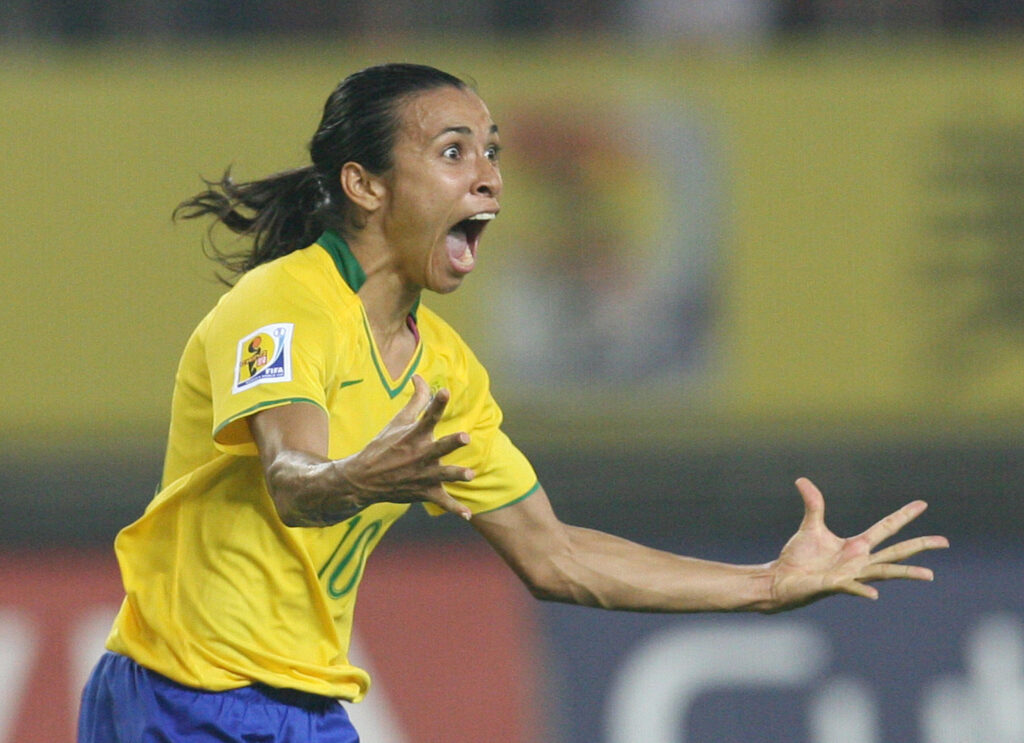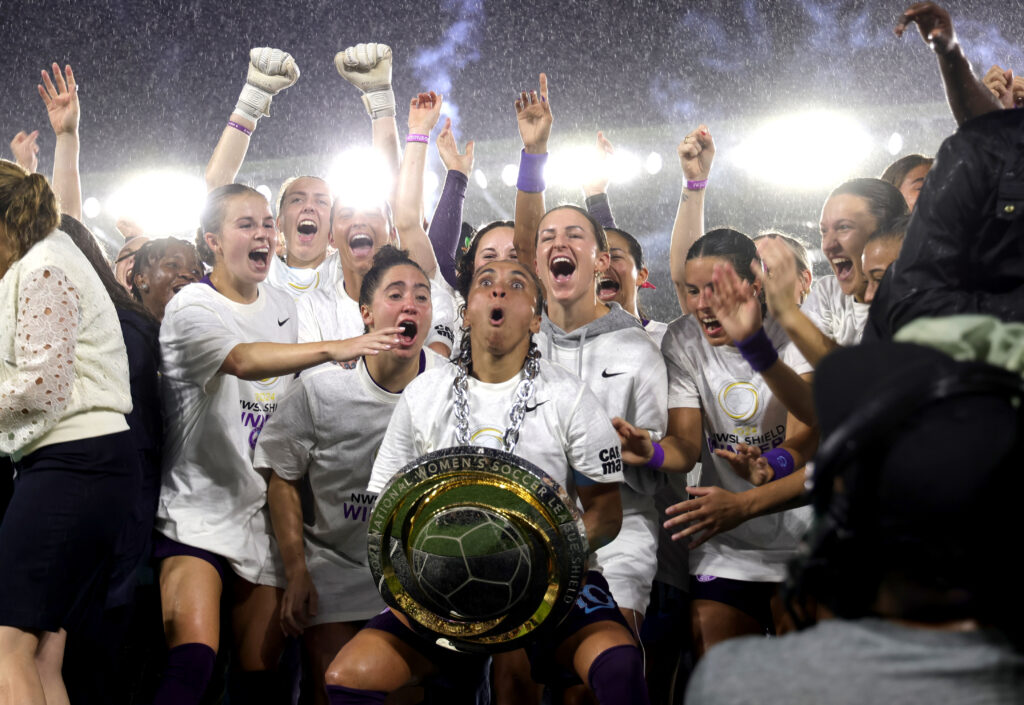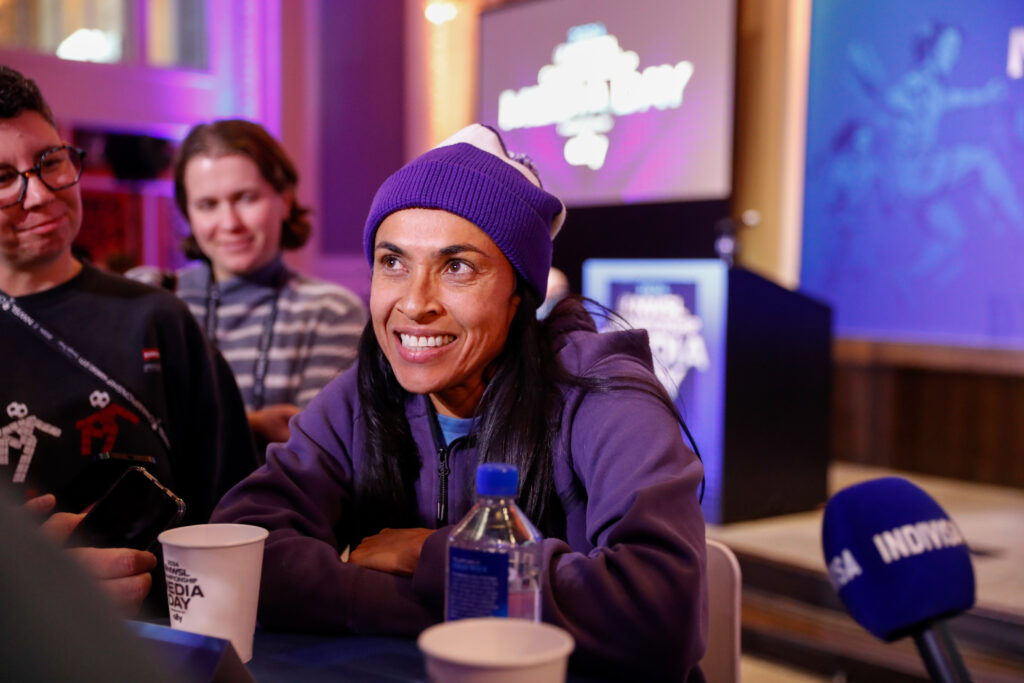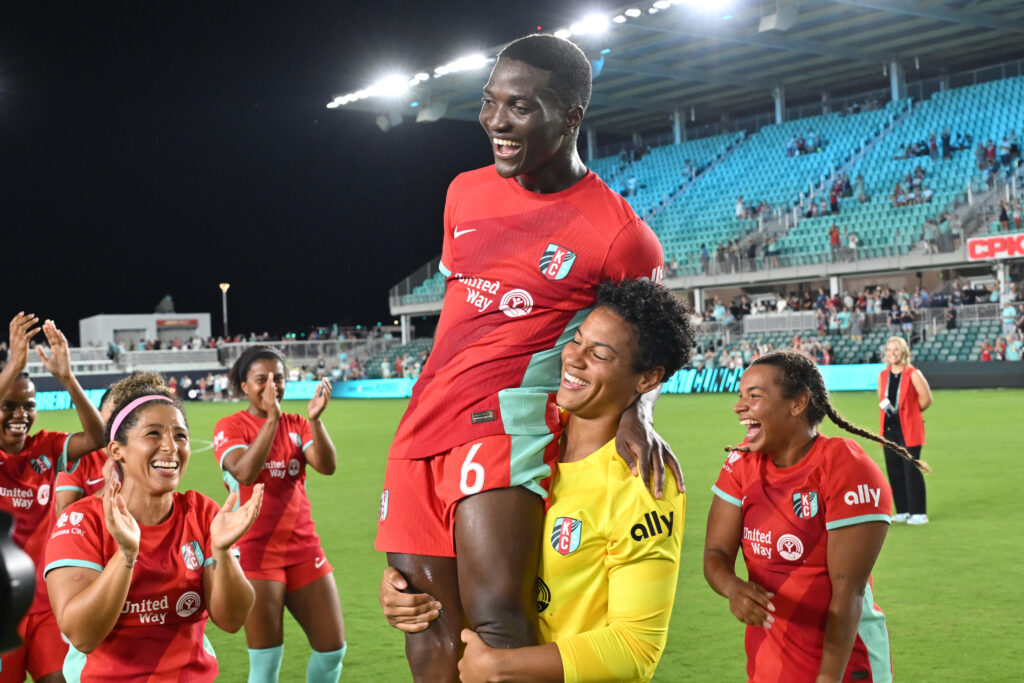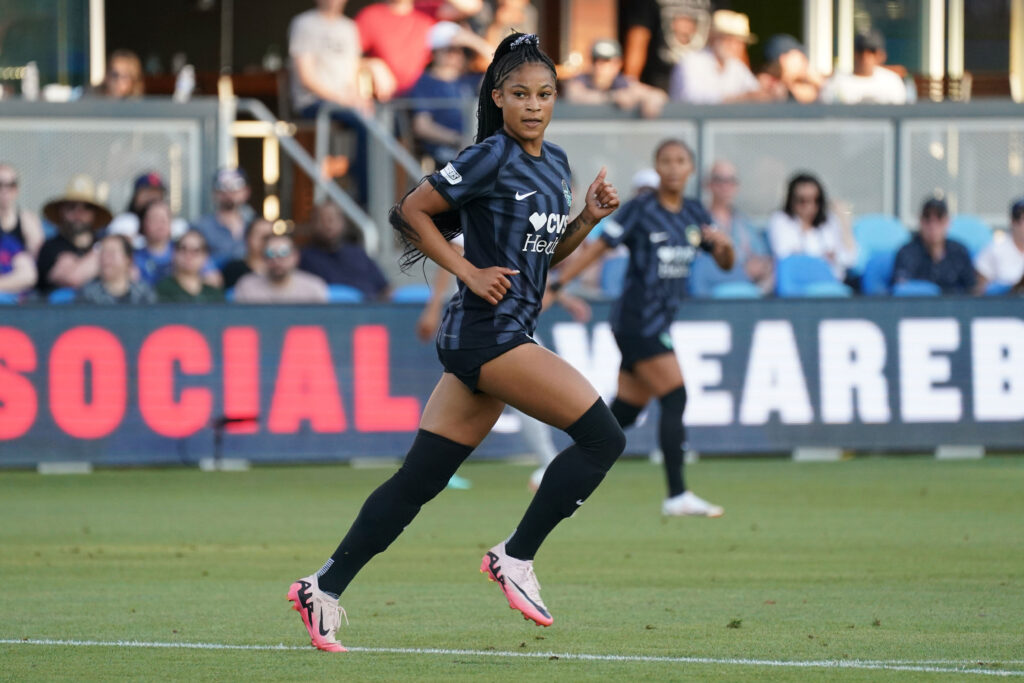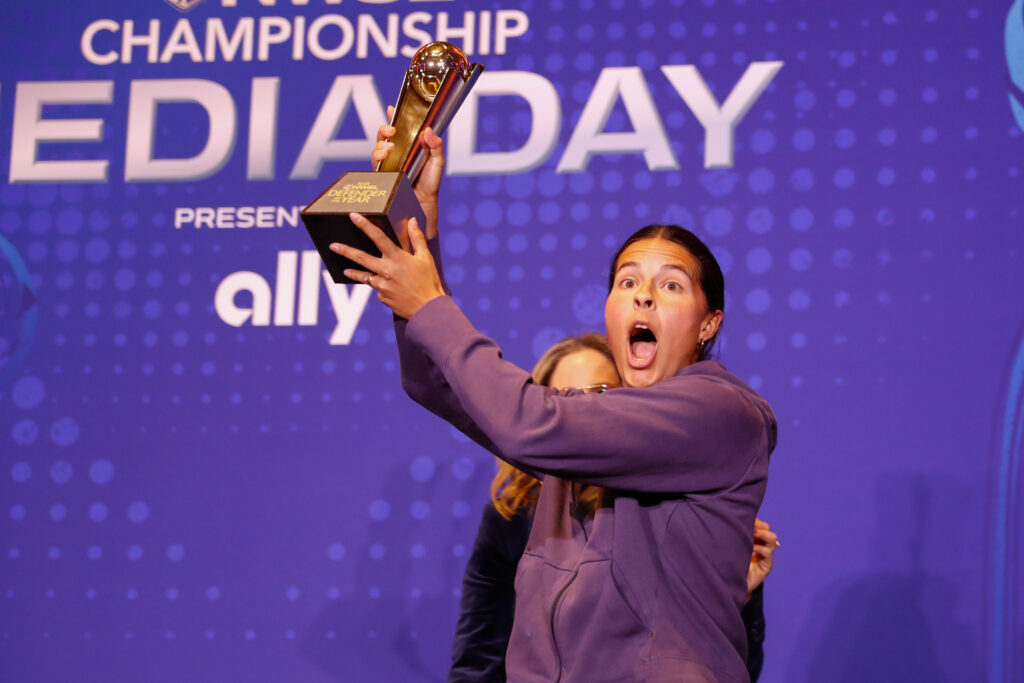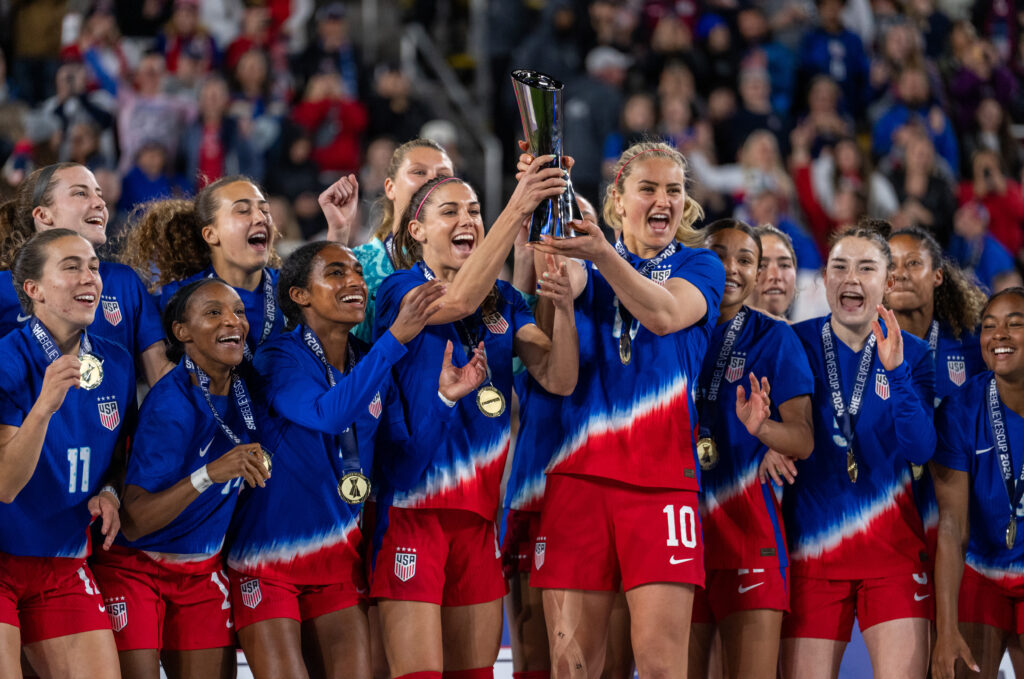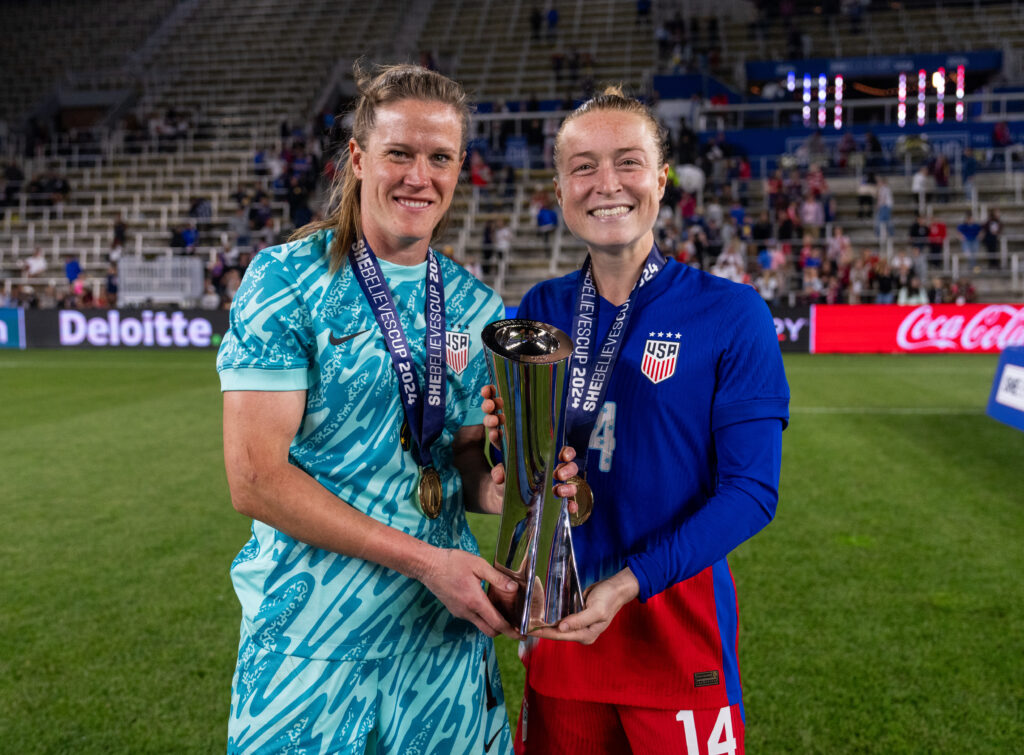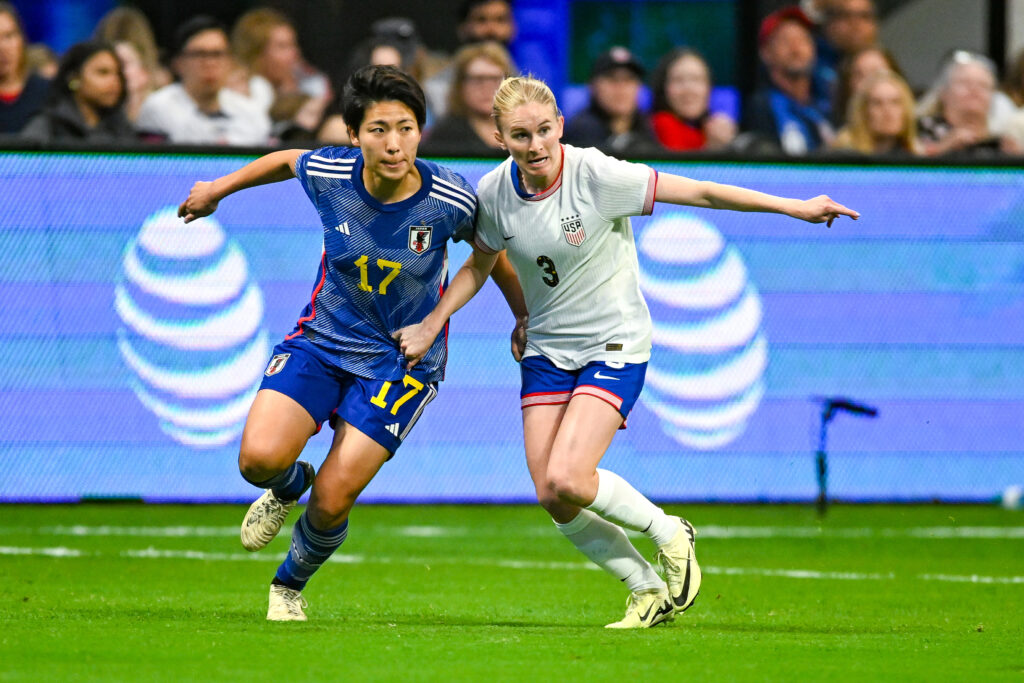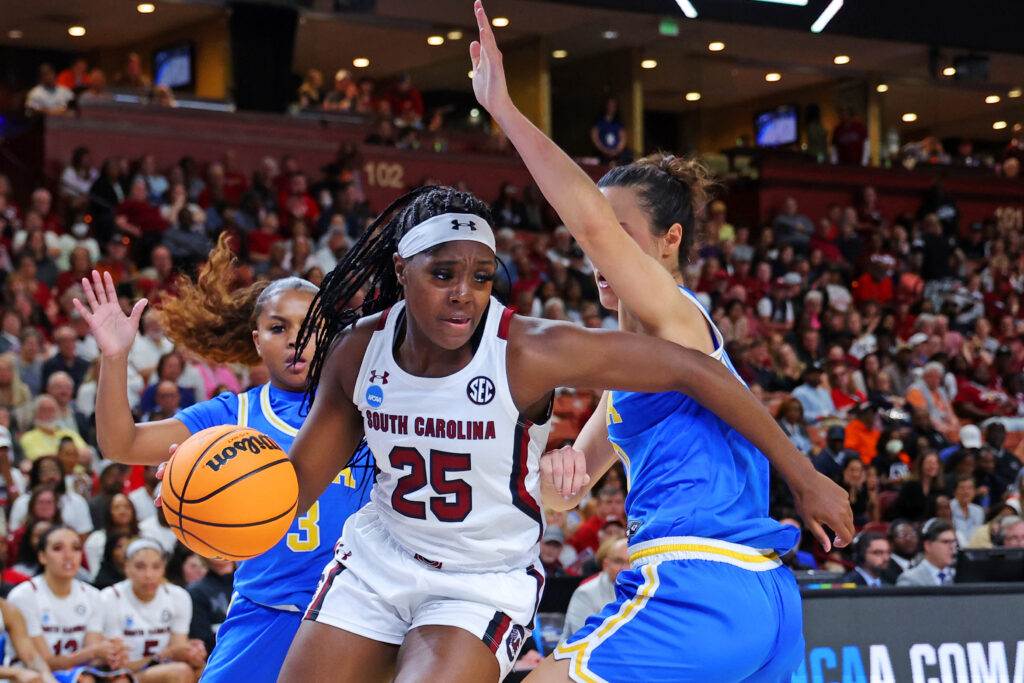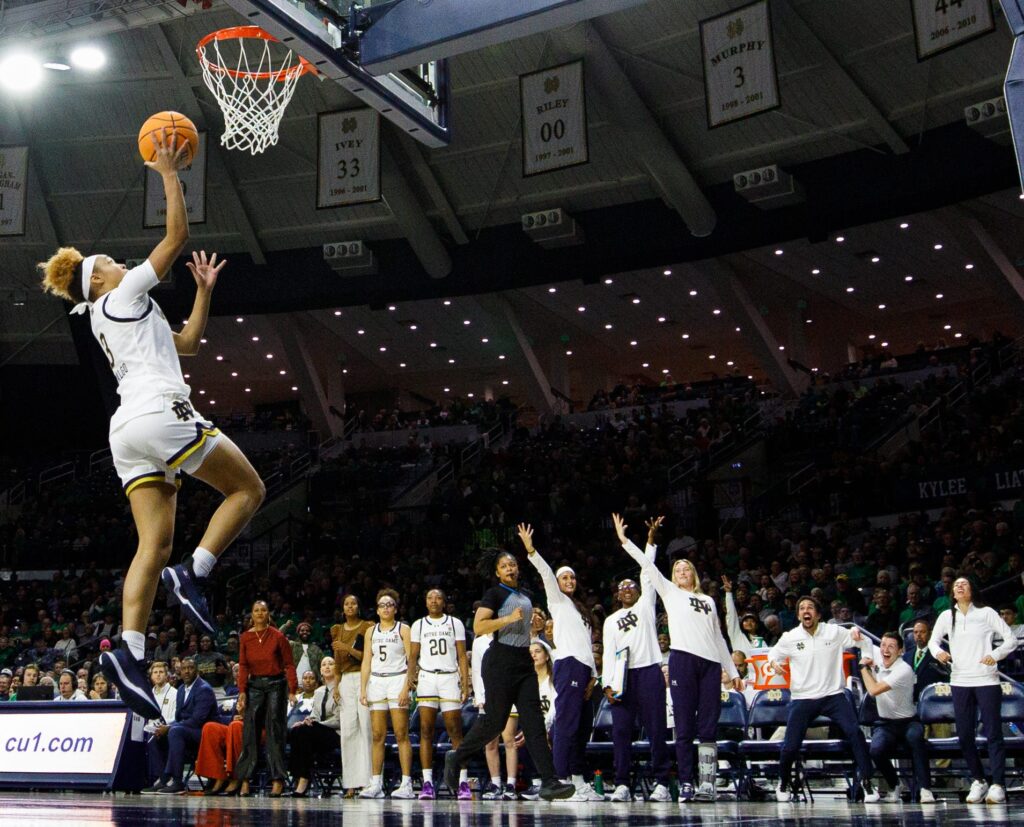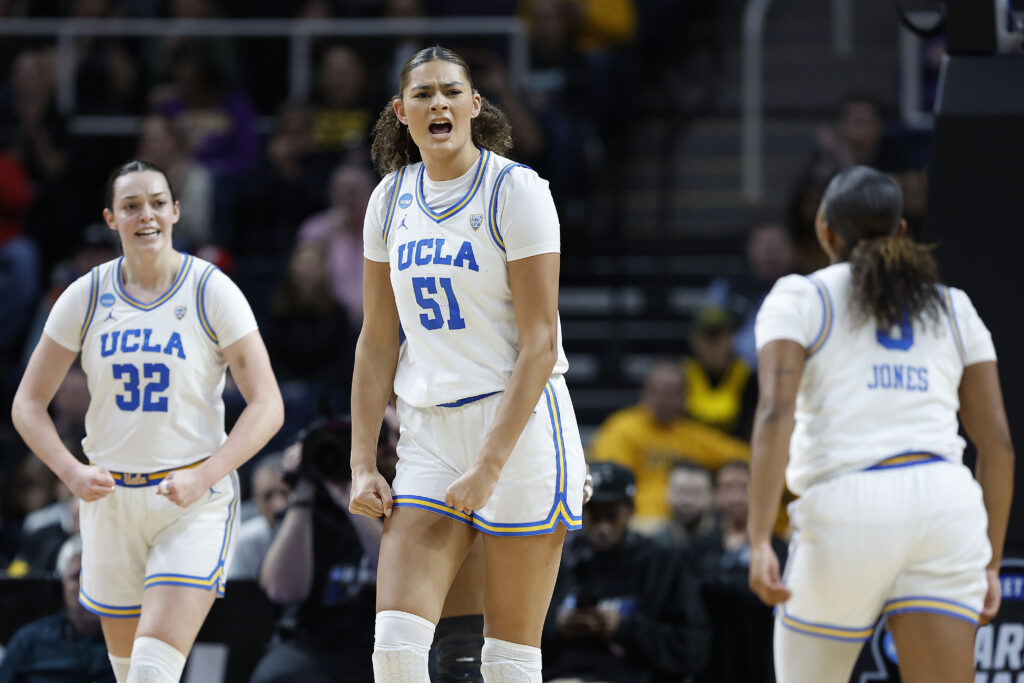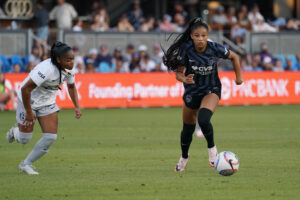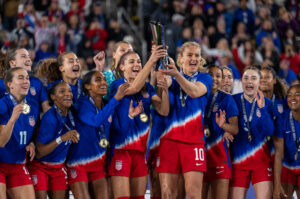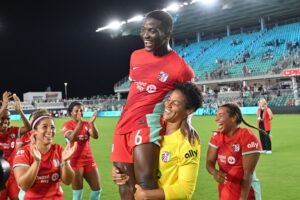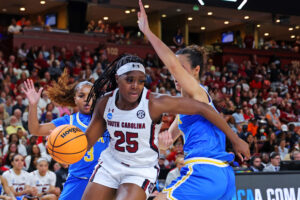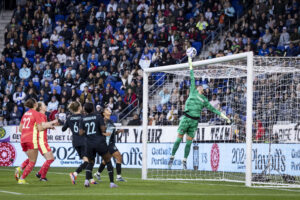Gwen Jorgensen is a professional distance runner and former triathlete. At the 2016 Rio Olympics, Jorgenson won the USA’s first-ever triathlon gold medal. She spoke with Just Women’s Sports about her current partnership with Wasserman and Orreco, which looks to help athletes understand their periods effects on their athletic performance. (To read an overview of the partnership, click here.)
How did you first hear about the partnership and what was your reaction?
I remember Wasserman reached out and just said, “Wasserman’s been working with Orreco about their periods and how it affects performance.” And I was really intrigued and curious. I’ve always been a big proponent about getting your period. And I think when I was growing up, there was this stigma of like, “Oh, if you don’t get your period, it’s a good thing.” And so, I was very interested, very intrigued, curious, but I was also a little doubtful.
But honestly, my partnership with them has surpassed and exceeded all my expectations. And I want everyone to have their own little Dr. Georgie in their circle. It’s been incredible. I’m a mom and a female athlete, and as an athlete I was once told that I could manipulate my period by going on birth control so that I wouldn’t be on my period during race days because otherwise you’ll perform worse. It came from a male figure who was kind of a coach. And that never really resonated with me well. And so, talking to Dr. Georgie and just hearing like, “No, we can do things like sleep and manipulate nutrition to actually perform on any day of your cycle.” I love that, and I love seeing the impact of that, and I think that’s a really great message for women.
How knowledgeable were you already about the science regarding how the menstrual cycle affects athletic performance?
I would say I wasn’t super knowledgeable. I knew little things about why some women need to go on hormonal birth control, but I never knew the science behind it. I’d heard women talking about why they cooked certain foods during different phases in their cycle, and I remember being really intrigued by that, but I didn’t really research it.
What’s most surprising about the science/or what’s the biggest insight that you’ve learned?
There’s been so many, it’s hard to pick one. For me personally, it was interesting because Dr. Georgie asked me if I got any symptoms, and I told her, no, I’m great. I don’t really get any symptoms. But she asked me to start tracking them anyways, and it turned out, I actually had a lot of symptoms. And I was like, “Well, yeah, but I just feel blessed because they’re not debilitating. I can live my life and it’s fine if I get a cramp, etc.” For me, I never talked about them as symptoms because I thought they were minimal. So that was really neat for me to learn and go through and have her acknowledge, “Those symptoms that you’re getting, maybe they’re not stopping you from doing what you’re doing, but we can make them even better, so you can perform even better on every day of your cycle.”
Some of the biggest things I learned were around nutrition. I feel like the, “You eat more fatty fish and berries around your fourth and first phase and eat more carbs during the training in phases three and four, then carbo-load in phases one and two” — things like that are interesting. I had some different coaches throughout my career who have wanted me to fast and to have some fasted runs or things like that. And to know that maybe during certain phases that might not be good, but during other phases of my cycle, it may be better — learning things like that has been really interesting.
More and more athletes and teams are discussing the need to track the menstrual cycle in order to maximize performance, but what needs to happen to bring this conversation into the mainstream?
I think there’s some people on our team who are more shy about it or don’t want to talk about it. But right now I’m part of the Bowerman Track Club, and Shalane Flanagan just became a coach. She’s always been super good about making it very known. Like, “If you aren’t getting your period, speak up, saying something to us.” Because that’s an indicator of something going wrong.
And so that’s a good thing. But I feel like to help take it to the next level, coaches need to have a really good open line of communication about periods. I think there’s a lot of females with male coaches, and I think it’s just like, “Oh, we shouldn’t talk about that.” But it needs to be more prevalent. And I think it needs to be talked about more between athletes and their coaches. The coaches that I’ve loved are experts at getting me ready to be my best on race day. They’re not afraid of having other people join the circle, right? So I have a sports psychologist. I have a nutritionist. I have a strength coach. Everyone is an expert in their field. And I think it’s important to have somebody like a Dr. Georgie in that circle, as somebody who’s an expert on my period and how it relates to my performance. I think it should be normal to say, I have a nutritionist, and I have a period coach.
One of the things I’ve loved about Dr. George is that we don’t have to change our training. We can mitigate symptoms through things like getting more rest or having certain foods or doing some yoga during certain times of your cycle so that you’re ready to perform on any day of your cycle. I think that’s super important for people to know. This isn’t like, “Oh, you can’t perform on day 20 of your cycle.” It’s not like that at all. It’s more, “No, we want to get you so that every day of your cycle, you’re ready to be a hundred percent.” And that’s something that is just so cool to be able to learn about and to be able to know I’m flying up to the start line and no stone has been left unturned. I know that no matter what day of my cycle I am, I can perform.
Do you see this partnership with Orreco as being part of a broader effort to normalize the discussion?
Yeah. I mean, we need to normalize periods, bottom line. We just need to normalize them, and menstruating, and females. And I think there’s not a lot of studies that have been done on females, and it’s sad. And I think what Orreco and FitrWoman and Dr. Georgie and everyone’s doing is going to bring it more to the forefront. But it definitely is going to take a lot of effort and time and getting the word out and letting people know this is important and sports science is not just about male athletes, it’s about female athletes as well.
How has this experience with Orreco changed or impacted your training?
Honestly my training isn’t actually changing that much, which is what I actually love about this partnership. But it’s everything outside of what you would typically consider training that’s changing. So my nap schedule, my resting, the foods I focus on and those sorts of things are changing, and that’s been something that’s been super cool to see then how that actually transforms into better training. And it’s not perfected. I still have monthly calls with Dr. Georgie and we’re like, “Okay, what went well this month?”
Sometimes there’s a new symptom that pops up and we’re like, “Okay, we’ve never seen this before. Why do we think that is? Did you have a down week? Did you train super hard? What are the factors?” That’s why I think, going back to earlier when I said, “Maybe we need a period coach.” Because it is something that’s ever-evolving and ever-changing.
Was there anything else that you wanted to bring up that I didn’t mention at all?
I think it’s just so important to normalize periods and know that, if you’re an athlete, it’s not okay if your period stops. Know that it’s good to talk about these things and everyone gets different symptoms and we can overcome those and become better athletes if we are able to do the right things and keep focused on the process.
